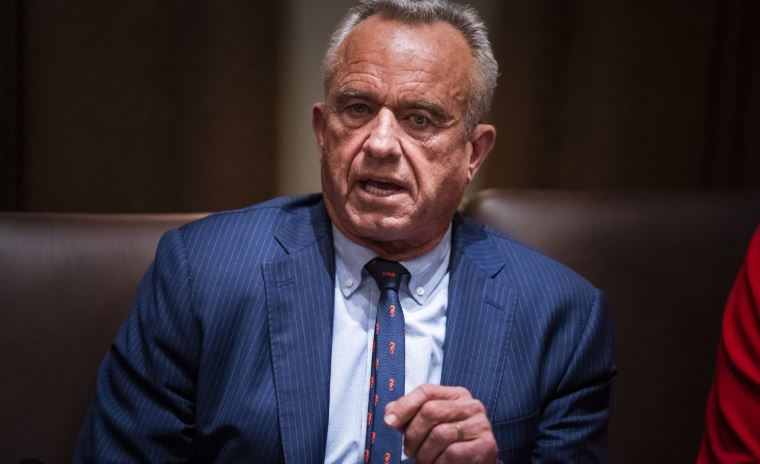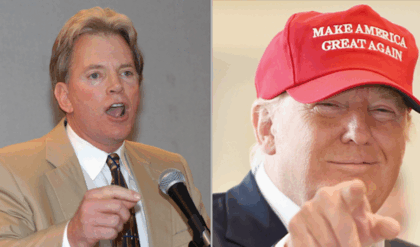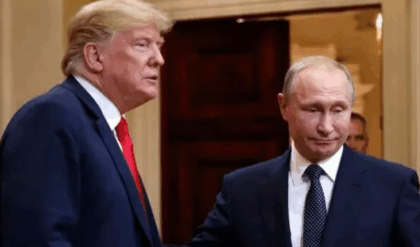In a bold and polarizing move, the Trump administration, led by Secretary of State Marco Rubio, has revoked over 300 student visas, targeting individuals accused of supporting pro-Palestinian causes. Among those affected is Rumeysa Ozturk, a Turkish doctoral student at Tufts University, whose arrest and visa cancellation have thrust this policy into the national spotlight. The administration frames this as a necessary “terror purge” to protect American interests, but critics argue it’s a direct assault on free speech and academic freedom. As of March 31, 2025, this development has sparked intense debate: Is this a legitimate security measure or a chilling overreach? Let’s unpack the issue, explore the facts, and weigh the implications.

The Policy Unveiled
The visa revocations are part of a broader crackdown initiated under President Donald Trump’s second term, which began in January 2025. Rubio, a staunch ally of Trump, has confirmed that the State Department has stripped legal status from hundreds of foreign students, many of whom participated in or expressed support for pro-Palestinian activism on U.S. college campuses. The administration justifies this by citing national security concerns, alleging that some of these students have ties to Hamas, a U.S.-designated terrorist organization, or have engaged in activities that undermine American foreign policy.
Rumeysa Ozturk’s case has become a flashpoint. A Fulbright scholar pursuing a PhD in child development at Tufts, Ozturk was detained by masked Immigration and Customs Enforcement (ICE) agents in Somerville, Massachusetts, on March 25, 2025. Security footage captured the dramatic scene: plainclothes officers handcuffing her as she walked to an Iftar dinner during Ramadan. Her visa was revoked shortly thereafter, and she was transferred to a detention facility in Louisiana—despite a federal judge’s order to keep her in Massachusetts pending legal review. Rubio defended her arrest, stating, “We give you a visa to study, not to become a social activist that tears up our university campuses.”
The Rationale: Security or Suppression?
The Trump administration’s stance hinges on a narrative of protecting the nation from “radicalism.” Rubio has claimed that students like Ozturk are “lunatics” who disrupt campuses with protests, vandalism, and alleged support for terrorism. A Department of Homeland Security (DHS) spokesperson echoed this, asserting that Ozturk “engaged in activities in support of Hamas,” though no specific evidence has been publicly disclosed. The administration points to the Immigration and Nationality Act, which grants the State Department broad authority to deport non-citizens whose presence is deemed “adversarial to U.S. foreign policy interests.”
This isn’t an isolated policy shift. Trump’s January 2025 executive order to combat antisemitism promised swift action against those accused of supporting “pro-jihadist” or “pro-Hamas” sentiments, particularly on college campuses. The revocation of over 300 visas in just three months reflects a systematic effort, dubbed “Catch and Revoke” by some officials. Supporters argue it’s a common-sense response to the global rise in extremism, especially following Hamas’s October 7, 2023, attack on Israel and the ensuing war in Gaza, which fueled campus protests worldwide.
But the lack of transparency raises red flags. In Ozturk’s case, the only documented “activity” appears to be a 2024 op-ed she co-authored in The Tufts Daily, criticizing Israel’s actions in Gaza and urging her university to divest from companies tied to the conflict. The piece never mentioned Hamas, focusing instead on Palestinian rights and international law. Is writing an opinion piece now grounds for deportation? The administration’s vague accusations leave room for speculation—and skepticism.
The Free Speech Backlash
Critics, including civil libertarians, academics, and even some Jewish advocacy groups, see this as a dangerous erosion of First Amendment rights. Ozturk’s arrest prompted over 2,000 protesters to rally in Somerville, waving signs like “Free Rumeysa Ozturk” and “Defend Student Voices.” Legal experts argue that targeting students for their political expression—especially without clear evidence of illegal acts—violates constitutional protections that extend to non-citizens on U.S. soil. “This isn’t about terrorism; it’s about silencing dissent,” said Vanessa Cárdenas of America’s Voice, calling the tactics reminiscent of “authoritarian regimes.”
The numbers tell a broader story. With approximately 1.5 million student visa holders in the U.S., the revocation of 300+ visas is a small but symbolic fraction. Yet the high-profile nature of cases like Ozturk’s, alongside others like Columbia’s Mahmoud Khalil and Georgetown’s Badar Khan Suri, suggests a deliberate message: criticize U.S. allies like Israel at your peril. Universities, too, are feeling the heat—Columbia lost $400 million in federal funding in March 2025 over alleged inaction on antisemitism, a move some link to this crackdown.
Public sentiment is divided. Posts on X reflect a mix of outrage (“Writing an op-ed isn’t terrorism!”) and approval (“If you’re here on a visa, don’t stir up trouble”). This polarization mirrors a 2024 YouGov poll, where 48% favored restricting SNAP purchases to “healthy” foods (a related debate), while 44% opposed—suggesting Americans are split on government intervention in personal choices.
The Bigger Picture: Health, Equity, and Power
This visa purge echoes other Trump-era policies, like RFK Jr.’s push to ban soda purchases with food stamps—a move also framed as protecting public welfare but criticized as overreach. Both initiatives highlight a tension between collective goals (security, health) and individual rights (speech, choice). In the visa case, the administration argues that curbing “radical” voices prevents unrest and aligns with U.S. support for Israel. Detractors counter that it disproportionately targets vulnerable groups—foreign students, often from Muslim-majority nations—while ignoring broader societal issues, like domestic extremism or the root causes of campus unrest.
Data adds nuance. The USDA notes that SNAP households already buy healthier foods at rates comparable to non-SNAP households, suggesting behavior isn’t the sole issue. Similarly, pro-Palestinian protests in 2024 often involved Jewish students and faculty, undermining claims of blanket antisemitism. If the goal is safety, why not pursue education or dialogue over deportation? Critics suggest the real aim is political: consolidating power by appealing to Trump’s base and punishing perceived adversaries.
What’s Next?
Ozturk’s fate remains uncertain. Her lawyer, Mahsa Khanbabai, is fighting her detention in federal court, citing First Amendment violations. Similar legal battles are unfolding for other students, with judges issuing temporary stays on deportations. The administration, however, shows no signs of slowing down—Rubio has vowed to “keep finding these lunatics” daily. Meanwhile, universities face a dilemma: crack down on activism to protect funding or defend academic freedom and risk reprisal.
So, where do you stand? Is this a justified “terror purge” to safeguard America, or a free speech crisis signaling authoritarian drift? The answer hinges on how you weigh security against liberty—and whether you trust the government’s narrative over the lack of hard evidence. One thing’s clear: in Trump’s America, the line between dissent and danger is razor-thin, and crossing it carries a steep price. Share your take—because in 2025, silence might be the riskiest choice of all.





